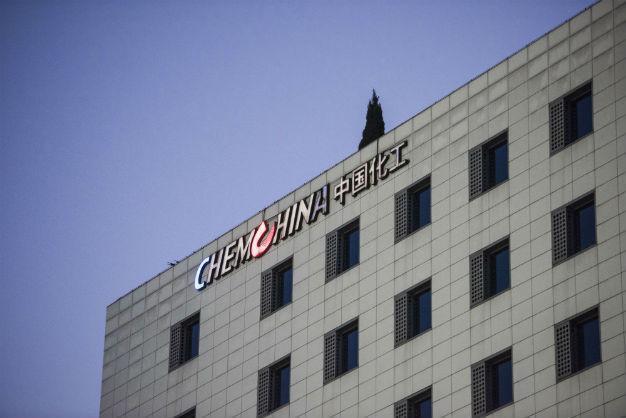China seeks food security with $43 bln bid for Syngenta
BASEL - Reuters

AFP photo
China made its boldest overseas takeover move when state-owned ChemChina agreed a $43 billion bid for Swiss seeds and pesticides group Syngenta on Feb. 3, aiming to improve domestic food production.The largest ever foreign purchase by a Chinese firm, announced by both companies, will accelerate a shake-up in global agrochemicals and marks a setback for U.S. firm Monsanto , which failed to buy Syngenta last year.
China, the world’s largest agricultural market, is looking for ways to secure food supply for its population. Syngenta’s portfolio of top-tier chemicals, fertilizers and patent-protected seed varieties will represent a major upgrade of its potential output.
“Only around 10 percent of Chinese farmland is efficient. This is more than just a company buying another.
This is a government attempting to address a real problem,” a source close to the deal told Reuters.
Years of intensive farming combined with overuse of chemicals has degraded land and poisoned water supplies, leaving China increasingly vulnerable to crop shortages. The deal fits into Chinese government plans to modernize its agriculture over the next five years.
With growth slowing at home, Chinese companies are looking abroad for deals that can boost their businesses. If completed, the Syngenta acquisition would be more than double CNOOC’s $17.7 billion purchase of Canadian energy company Nexen in 2012.
Syngenta CEO John Ramsay, who described the ChemChina offer as “very appropriate and attractive,” said he saw no major barriers and noted that ChemChina had secure financing in place.
A source with knowledge of the deal said the funding would come from a range of Chinese players, as well as HSBC and China CITIC Bank International.
“I think the overall regulatory approvals will not be very challenging,” Ramsay told Reuters, adding he expected antitrust regulators to acknowledge the limited overlap.
The Committee on Foreign Investment in the United States (CFIUS), whose mandate is U.S. national security, would not pose a major hurdle, Ramsay said.
Swiss regulators said their conditions were largely met by the terms of the deal, although they want Swiss retail investors to receive the ChemChina offer in Swiss francs and warnings to be given on foreign exchange risks.
















